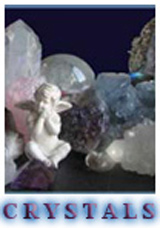
Guest Articles >> Natural Health
All about Cancer Risk Factors and Cancer-Causing Agents
By Mandy Bular
Cancer is the most dreaded disease not only in the USA but all over the world. Cancer is actually caused by mutations or changes in the DNA within the cells. The DNA present in a cell is actually, packaged into several individual genes, each of the genes would be containing a number of instructions specifying the functions that need to be performed by the cell and also ways to grow and divide. There could be certain errors in these instructions that may negatively affect the normal functioning of the cell and could be allowing a cell to be cancerous.
Cancer and Risk Factors
Though doctors know what factors would be increasing your risk of cancer, most cancers affect people who do not seem to demonstrate any risk factors. However, a study about the various risk factors could be fruitful in the prevention of different types of cancer. Here are some of the factors that boost your cancer risks.

Age Is Vital
It is a well-known fact that cancer usually would be taking decades to develop. This is the primary reason why most cancer patients are 65 years old or even older. Even though cancer is more prevalent in older adults, you must keep in mind that cancer is not supposed to be exclusively an adult illness. Cancer could be detected at any age.
Family History Is Relevant
Even though a small portion of cancer cases are actually caused by inherited condition, you must keep track of family history. Remember not to undermine the role of hereditary factors in the incidence of cancer. If in your family, cancer cases are pretty common, there is every possibility of mutations being transmitted from generation to generation. You would be an ideal case for genetic testing for examining if you are having any inherited mutations which could boost your chances of developing certain cancers. However, there is no reason to panic as it is not necessary that if you have any inherited genetic mutation, you are bound to get cancer.
Habits Are Important
Certain lifestyle preferences would be increasing cancer risks. Excessive drinking, smoking, obesity, excessive sun exposure, unsafe sex or even frequent blistering sunburns could be contributing to cancer. You could change your usual habits. Avoid smoking. Restrict your alcohol consumption to one drink per day. Maintain an ideal weight and stay fit and active. Avoid unsafe sex to rule out any infections whether HIV or hepatitis. Avoid excessive sunbathing or exposure to the harmful UV rays of the sun. Lifestyle changes could go a long way in the prevention of cancer.
Health Issues Need to Be Considered
Chronic health issues need to be considered, for instance, ulcerative colitis is instrumental in increasing your chances of acquiring specific kinds of cancers. Consult your doctor about your risk factors.
Environment Is the Key
The environment could be containing harmful chemicals which may trigger the incidence of cancer. Even though you do not smoke, you could be inhaling secondhand smoke. Passive smokers could develop cancers too. Chemicals in your workplace or home like benzene and asbestos could boost cancer risks.
Some Cancer-causing Agents
Some of the agents which may be causing cancer include:
Chemical Carcinogens:
We have already discussed the role of environment in triggering cancer. Several environmental toxins and chemicals are actually responsible for bringing about modifications to the normal cellular DNA. Substances causing DNA mutations are called mutagens and these mutagens causing cancer are called carcinogens. Tobacco smoking and prolonged asbestos fiber exposure are associated with various types of cancer.
Ionizing Radiations:
Radiations caused by radon gas and ultraviolet radiation exposure could cause melanoma and other such skin malignancies. Moreover, radiation therapy for treating one kind of cancer could lead to another kind of cancer.
Bacterial and Viral Infections:
Infections with pathogens would cause certain types of cancers. Some of the cancers triggered by bacterial and viral infections are liver cancers caused by Hepatitis C and B infections, stomach cancer caused by Helicobacter pylori infection, and cervical cancer triggered by HPV infections etc.
Hormonal Changes:
Fluctuations in the female hormone estrogen levels could cause cancer. Excessive estrogen would be promoting uterine cancer.
Immune System Dysfunction:
Impaired immunity and even HIV infection could trigger many cancers including non-Hodgkin's lymphoma, Kaposi's sarcoma and even HPV-related malignancies like cervical cancer and anal cancer.
Conclusion
There are several factors including environmental factors and genes that trigger cancer risks. Exercise and dieting is certainly not the complete picture, but they are very much under your control and you have the power to change. So stay as lean, fit and active as possible. Avoid all sugary drinks and restrict consumption of all high-calorie food items.
About the Author
Mandy Bular is an oncologist who has published several papers on monoclonal antibodies and its significant role in the treatment of cancer. He is an avid blogger and has been writing articles for different publications and sites for the past 5 years. His hobbies also include bike riding, fishing and listening to music.
Comments:














